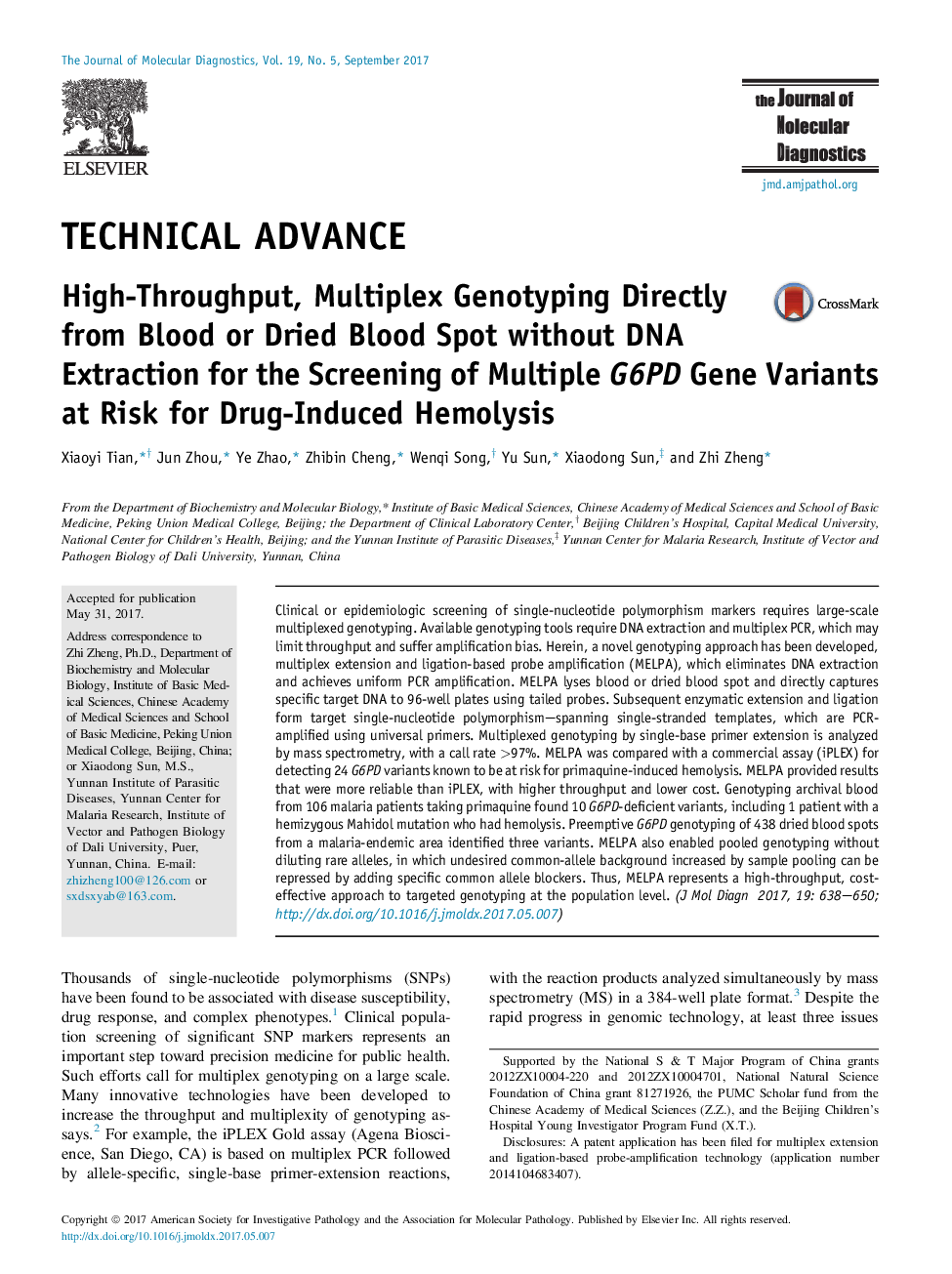| Article ID | Journal | Published Year | Pages | File Type |
|---|---|---|---|---|
| 5662971 | The Journal of Molecular Diagnostics | 2017 | 13 Pages |
Abstract
Clinical or epidemiologic screening of single-nucleotide polymorphism markers requires large-scale multiplexed genotyping. Available genotyping tools require DNA extraction and multiplex PCR, which may limit throughput and suffer amplification bias. Herein, a novel genotyping approach has been developed, multiplex extension and ligation-based probe amplification (MELPA), which eliminates DNA extraction and achieves uniform PCR amplification. MELPA lyses blood or dried blood spot and directly captures specific target DNA to 96-well plates using tailed probes. Subsequent enzymatic extension and ligation form target single-nucleotide polymorphism-spanning single-stranded templates, which are PCR-amplified using universal primers. Multiplexed genotyping by single-base primer extension is analyzed by mass spectrometry, with a call rate >97%. MELPA was compared with a commercial assay (iPLEX) for detecting 24 G6PD variants known to be at risk for primaquine-induced hemolysis. MELPA provided results that were more reliable than iPLEX, with higher throughput and lower cost. Genotyping archival blood from 106 malaria patients taking primaquine found 10 G6PD-deficient variants, including 1 patient with a hemizygous Mahidol mutation who had hemolysis. Preemptive G6PD genotyping of 438 dried blood spots from a malaria-endemic area identified three variants. MELPA also enabled pooled genotyping without diluting rare alleles, in which undesired common-allele background increased by sample pooling can be repressed by adding specific common allele blockers. Thus, MELPA represents a high-throughput, cost-effective approach to targeted genotyping at the population level.
Related Topics
Health Sciences
Medicine and Dentistry
Health Informatics
Authors
Xiaoyi Tian, Jun Zhou, Ye Zhao, Zhibin Cheng, Wenqi Song, Yu Sun, Xiaodong Sun, Zhi Zheng,
